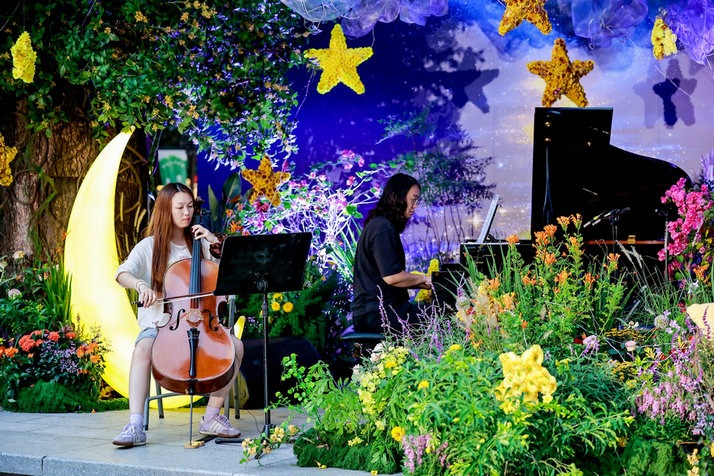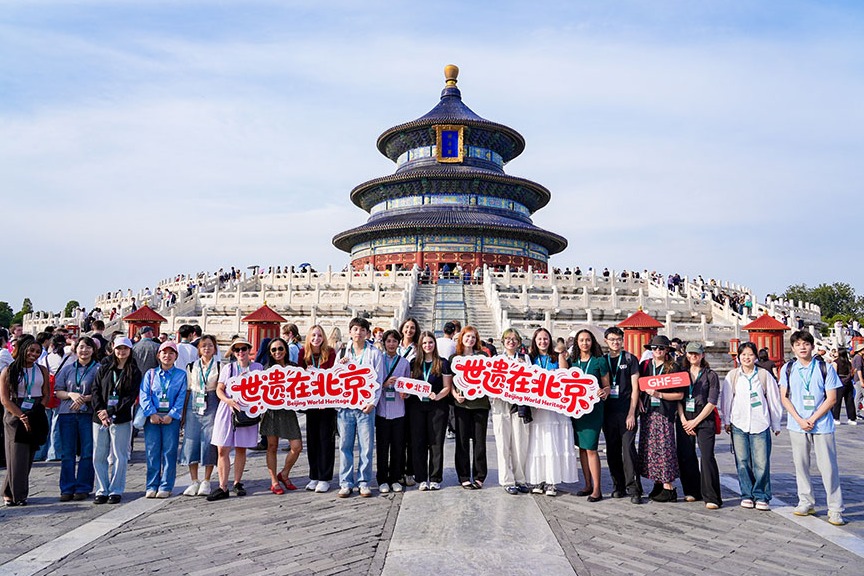Narrow alley, broad minds


An about 2-meter-wide alley, or "Liu Chi Xiang" in Chinese, now attracts floods of visitors in East China's Anhui province. It has a household's ancient story hidden behind it, which vividly explains the essence of tolerance and non-contention widely esteemed in China.
During the reign of Emperor Kangxi in the Qing Dynasty (1644-1911), one of his ministers, Zhang Ying, received a letter from his family back in his hometown of Tongcheng city in Anhui one day.
From the letter, Zhang learned that his family quarreled with their neighbor Wu, and Wu's family, over the two sides' house boundary. The local court struggled to reach a final verdict since both families enjoyed high prestige in Tongcheng.
Zhang's family wrote the letter hoping that Zhang, a high-ranking official in the imperial palace, could force the Wu family to yield to their demands.
However, Zhang wrote a poem back saying, "Writing a letter from home, miles away, just for a wall. All that fuss over one meter or two. Looking at the ten thousand mile-long Great Wall. Long gone is its builder Emperor Qinshihuang."
His reply enlightened the family members as the wall was merely a temporary structure. It was the close relationship with their neighbors that mattered.
They decided to move their wall about one meter back for their neighbor. In turn, the Wu family was deeply touched by their generosity and retreated another meter backward in building their wall. It created an about two-meter-wide narrow "alley" between the houses.
More than 30 decades later in modern China, Tongcheng has become a national historical and cultural city, a statement released by the State Council said on Nov. 12.
Among all the valuable historical sites in the city, the narrow alley is one of the most renowned attractions. It serves as enlightenment, inspiring people to observe public morals and cherish harmony, especially in disputes and conflicts.
Many locals still live in tiny houses next to each other and share walls with their neighbors. Inevitable problems like noise and division of responsibility when it comes to a broken wall are commonplaces.
Zhang Yun, Party secretary of Liuchixiang Community, also a descendant of Zhang Ying, has drawn on his ancestor's wisdom in mediating such daily disputes.
"A good neighbor is better than a brother far away. I always cite the ancient story of my ancestor to persuade them to make compromises for each other," said Zhang Yun.
In charge of a community with about 7,000 residents, Zhang Yun handles at least two disputes per month, including quarrels, family and marriage disputes, house demolitions, and the like.
More than 2,400 disputes have been resolved across Tongcheng so far this year. About 98 percent are successfully handled thanks to the virtues of modesty and harmony embedded in the local culture.
"It can be a waste of both time and energy if a minor case goes to court. Many disputes can be nipped in the bud if one takes a step back first," said Zhang.
"I know it is hard to make a concession, especially when you feel that you are right. But if the right side can step back a little, the other side might return the favor one day in other forms," he added.
Forbearance and harmony, long openly honored in the country, are evident in bilateral relations between countries as well.
China has highlighted peace, harmony, and co-existence for more than 5,000 years. It has always been a builder of world peace, a contributor to global development, and a defender of the international order.
Building a community with a shared future, first proposed by China, has become a banner, leading trends of the times and human progress. China has also broken new ground with its diplomatic endeavors amid profound global changes and turned crises into opportunities amid vicissitudes.
Mutual respect, peaceful co-existence, and win-win cooperation are now considered vital principles in international relations in the new era.
The narrow alley story has been frequently quoted by Chinese leaders when solving international disputes, said Ye Xin, curator of the city's museum.
"We are repairing the old houses on both sides of the alley; not only for better preservation of the relics but also for the traditional Chinese culture behind the alley," Ye said.

































